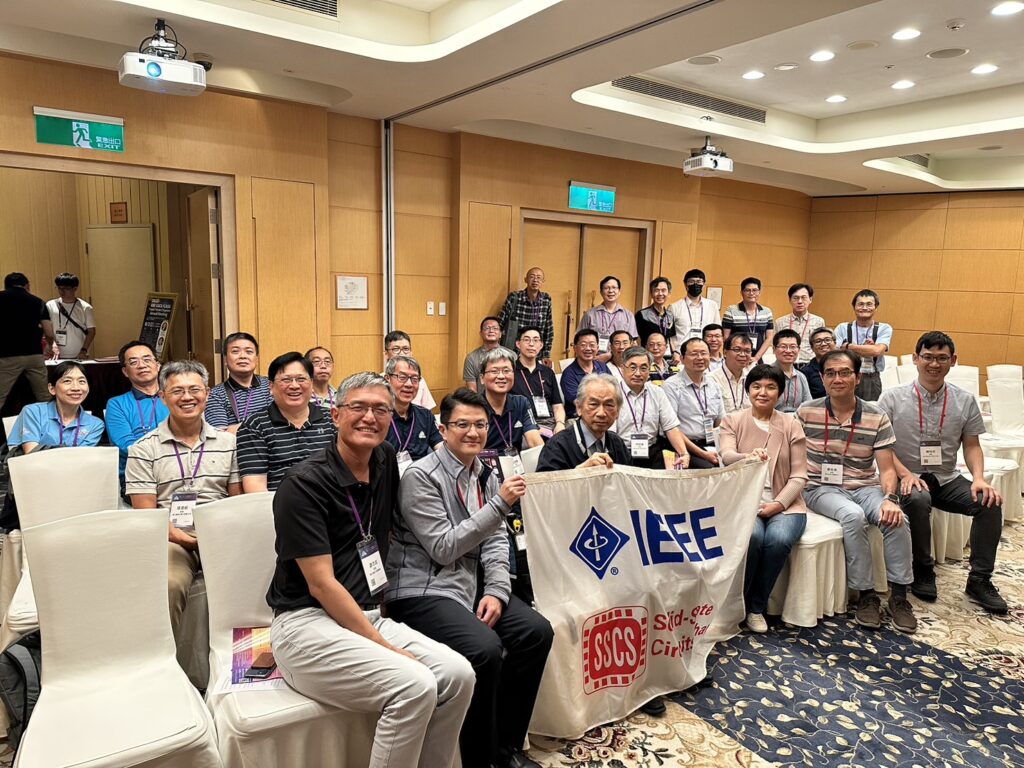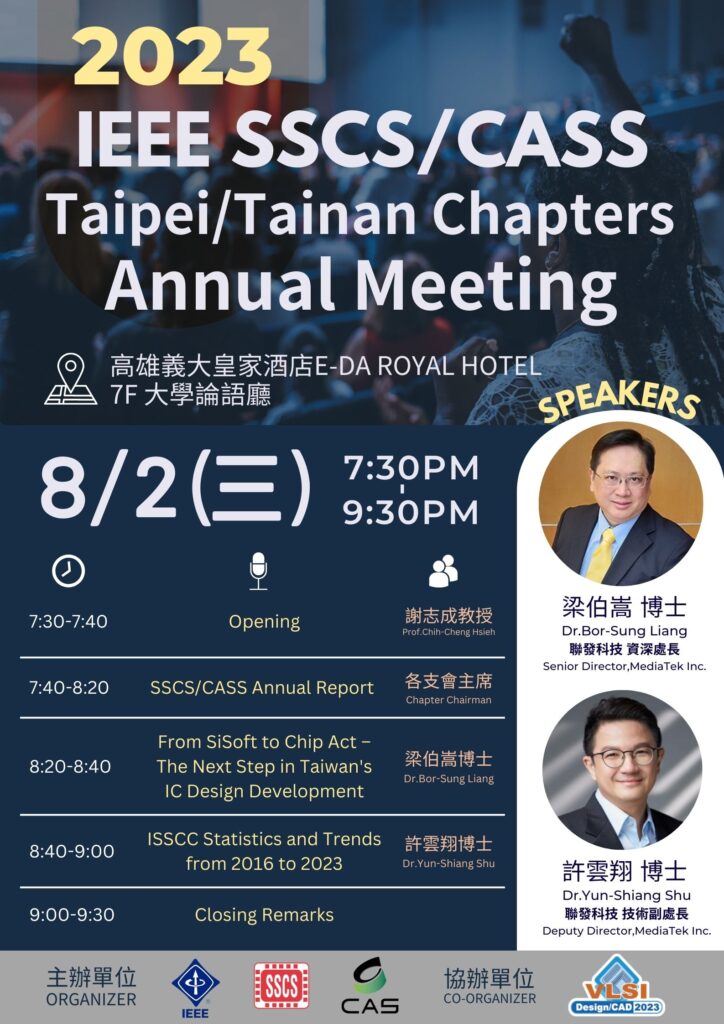

Speaker:梁伯嵩博士Dr.Bor-Sung Liang
Topic: From SiSoft to Chip Act – The Next Step in Taiwan’s IC Design Development
Abstract:
Based on solid semiconductor manufacturing infrastructure and industry-government-university-research cooperation, Taiwan has successfully established the IC design industry with globally competitive from the scratch. The government’s strategic policy in the early years have played an important role. Since 1990s, IC design courses were introduced in major universities in Taiwan, and the CIC (Chip Implementation Center) was established to cultivate talents. The National SoC Project (also known as “SiSoft”) started from 2002 was the key project to benefit IC design ecosystem, and the industry’s research and development efforts further propelled its growth, resulting in a strong Taiwan IC design industry, which has $41 billion revenue in 2022.
However, in recent years, the government’s focus was shifted towards applications and startups, and reduced investment in IC design technologies in advanced process nodes for academic and research ecosystem. Besides, talent shortage is another significant concern for industry development. Especially since major countries like the US, Europe, South Korea, Japan, and China have recognized the critical importance of IC semiconductors and implemented substantial subsidies and plans through initiatives like the Chip Act.
At this crucial turning point, Taiwan will introduce the new program “Chip Innovator Program” (tentative name), which requires collaborative efforts from industry, government, academia, and research to refocus and reshape Taiwan’s IC design industry’s competitiveness strategically.
Speaker:許雲翔博士Dr.Yun-Shiang Shu
Topic: ISSCC Statistics and Trends from 2016 to 2023
Abstract:
IEEE International Solid-State Circuits Conference (ISSCC) has been recognized as the “Chip Olympics”, where industry and research groups would showcase their world-leading technologies and innovations to the world. Therefore, ISSCC has been considered as a great gateway to foresee the shape of future semiconductor industry. During this talk, we will try to categorize the ISSCC publications from 2016 to 2023 by affiliations, technical areas, and geographic regions. Through this process, we could observe several trends of semiconductor industry, including the emergence of China academia.